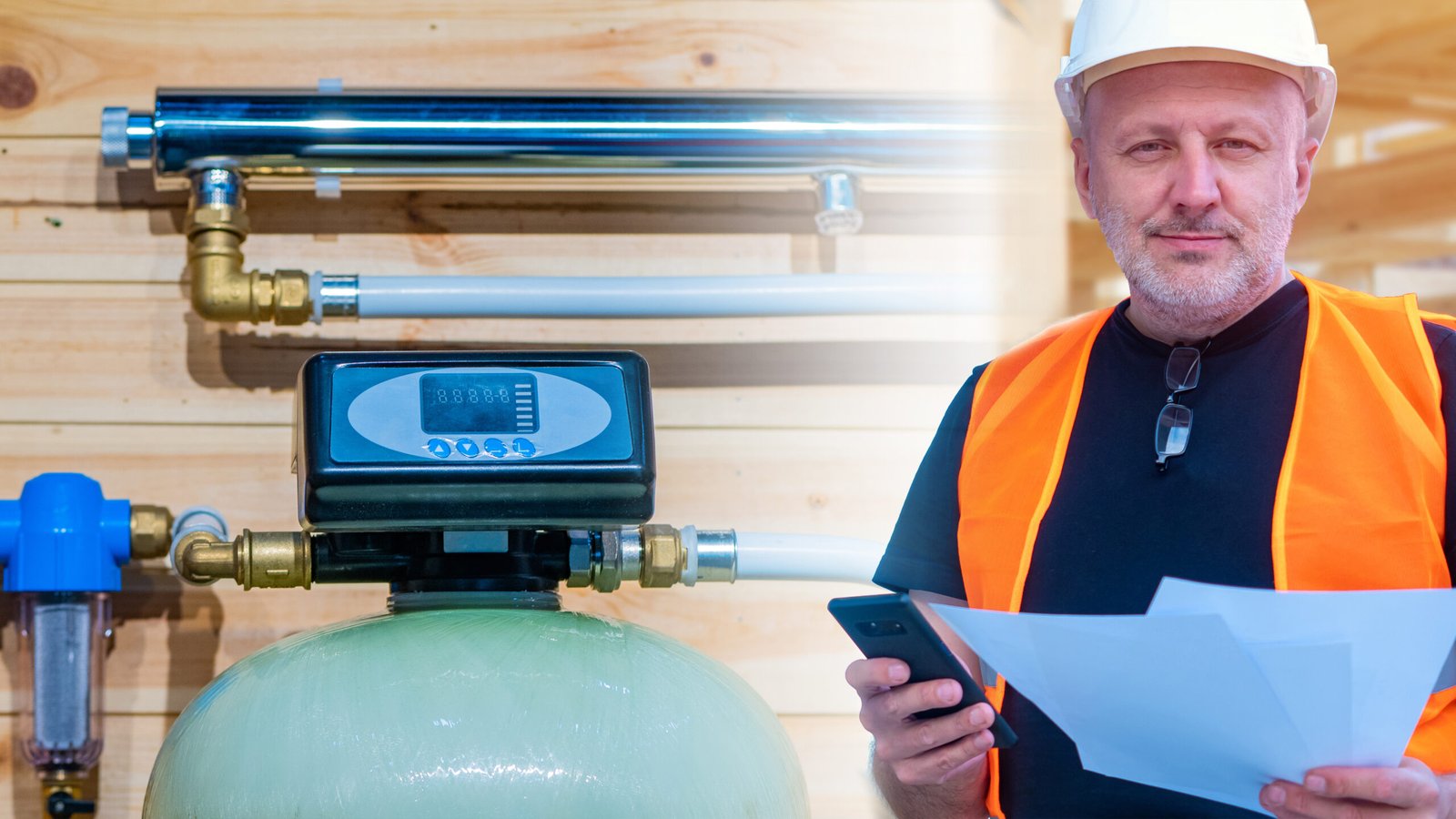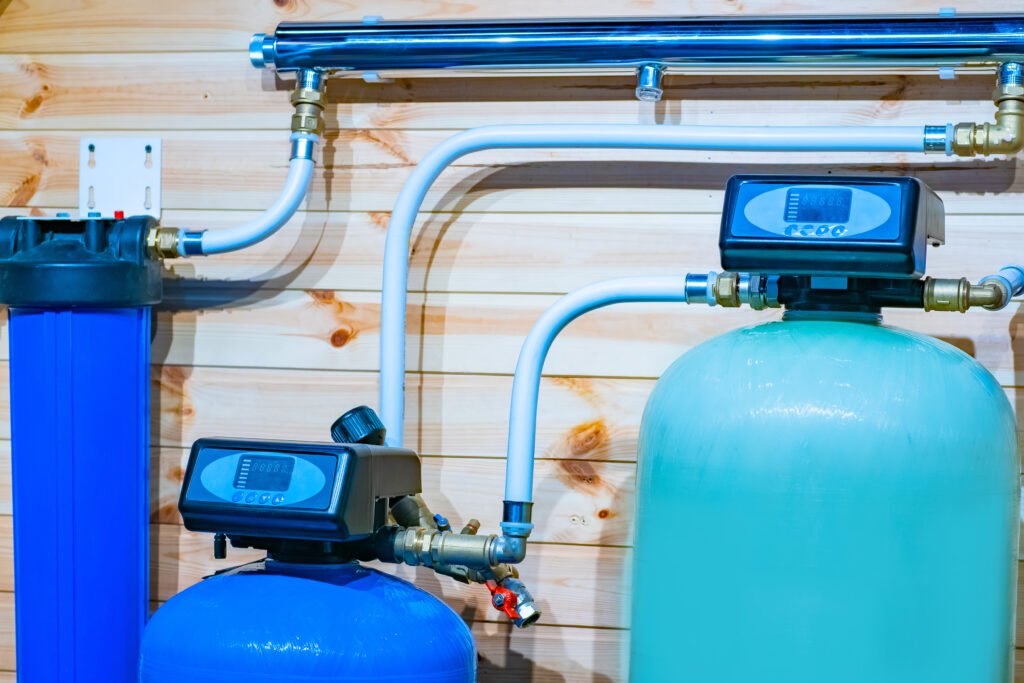Address
Unit 8, Meerzicht Business Park, 33 Kelly Road, Jet Park Boksburg, 1459
Work Hours
Monday to Friday: 8AM - 5PM
Address
Unit 8, Meerzicht Business Park, 33 Kelly Road, Jet Park Boksburg, 1459
Work Hours
Monday to Friday: 8AM - 5PM

Water filtration systems are essential elements of our homes. Also called a point-of-entry tap, a whole-house water filter system is installed where your main water line enters the house. This water filter system for home reduces contaminants in your water by filtering out iron, chlorine, and sulfur, among others, to make your home water safer.
These filters enhance the cleanliness and safety of your water, removing any contaminants that get into it after its treatment. The family can access multi-filtered water across the household, which is then used for various domestic chores. Or other uses like preparing meals, taking a shower, or brushing your teeth.
To get the best out of your water filtration system, however, you should know what makes the system and how it works. These concerns and more are the basis of this article.
For instance, we’ll help you understand how to choose the best whole-house water filter system based on the composition of your water. Depending on their design elements, we’ll rely on our expertise to recommend the best whole-house water filter systems. This is paramount to the safety of your home water, as some system designs are suited to removing foul odors due to chlorine while others reduce physical sediments.
This comprehensive guide will answer as many questions about your whole-house water filtration system as possible. So… let’s dive in.
How Whole-House Water Filters Work?
Home water passes through an intricate journey before it reaches your faucet. From its natural source, like a lake, river, or underground springs, water flows along natural channels and is tapped and held into a central treatment center. While the water is often clean at its initial source, it usually picks up particulate dirt and other minute contaminants. Together, these impurities make the water hard, smell bad, or taste off.

This is why water treatment is required. The center processes and treats all collected water before distributing it to various homes within any given area. But not everything gets removed. Indeed, studies show a 19% likelihood of emerging water contaminants such as PFOA, PFOS, pesticides, and pharmaceutical runoff being detectable in post-treatment water. Further, treated water can pick up more contaminants while in transit from treatment centers to your home. This is often a result of aging infrastructure and lead piping, while post-treatment reservoirs are palpable. All this demands a robust whole-house water filtration system.
This applies if you get your water from a well. Such water often includes clay, silt, dirt, and other sediments. All of these water contaminants are removed by a whole-house water filter. Additionally, such systems can soften hard water while increasing the safety, quality, and odor of your home water.
Whole-house water filters work through several levels of the water filtration process. These include the pre-filter stage to remove large particulate contaminants. The activated carbon stage reduces chlorine and chloramines. And the final post-filter stage removes any remaining sediment and pollutants from your water before it reaches your taps. We recommend changing your post-filter every 6-12 months for optimal results.
Advantages of Using Whole-House Water Filters
Whole-house water filtration systems can offer specific water treatments for your water. This is impossible at the central water treatment plant, where large sums of water are treated and supplied over a large area. But home water filtration systems can solve specific issues before the water reaches your faucet, including reducing chemical contaminants or removing foul odors.
This water is essential to everything happening in a home. Allowing unsafe water into the house puts the entire family at risk, including possible medical issues related to unsafe water. This can be avoided by installing a whole-house water filtration system too:
Do I Need a Whole-House Water Filter?
Whatever the water source in your home, chances are you need a whole-house water filter. This is because not all water contaminants are physical and discreet, making it easy to have unsafe water in your home despite being treated. Should this happen, you’ll see stains on your surfaces alongside a foul smell or bad taste in the drinking water.The major signs that your home needs a water filtration system include the following:
Unfortunately, not all water contaminants show noticeable signs. This is common in most chemical impurities in your water, with the most common including:
Test your home water regularly to know if you need a whole-home water filter. Unfortunately, someone in your home will be exposed to these dangerous components long before you detect them in your water. To be sure your water is safe, consider a proactive, preventive approach that leaves nothing to chance. This means getting a home water filtration system right away. It’s also much cheaper and more convenient, as you’ll only need to maintain it every time rather than test your home water.

How to Choose the Best Whole-House Water Filter?
There are plenty of whole-house water filtration systems on the market, but not each one suits your particular needs. Most water filters are designed to reduce specific contaminants in your water. But the quality of water in your home depends on where you live and your water supply.
Thus, the best water filter for your home is only determined by testing the water. This is best done by multi-skill water experts, who can then tell you the best whole-house water filter for your home.
When selecting a whole-house water filter, consider the following factors:
By taking these factors into account and consulting with water experts, you can choose the best whole-house water filter system that effectively addresses the specific water quality issues in your home.
Remember, investing in a high-quality whole-house water filtration system ensures that you and your family have access to clean, safe, and healthy water for all your daily needs. It provides peace of mind knowing that you’re taking proactive steps to protect your household from potential water contaminants.
In conclusion, a whole-house water filter system is a valuable addition to any home. It ensures that the water you use for cooking, drinking, and other purposes is free from harmful contaminants. By understanding how these systems work, recognizing the signs that indicate the need for a filtration system, and choosing the right one for your specific water quality requirements, you can enjoy the benefits of clean, filtered water throughout your home.
If you’re uncertain about the quality of your water, it’s always a good idea to consult with water experts who can assess your water and recommend the most suitable whole-house water filtration system for your needs.
Remember, the health and safety of your family depend on the quality of the water you consume. Invest in a whole-house water filtration system to ensure that every drop of water in your home is clean, pure, and free from harmful contaminants.